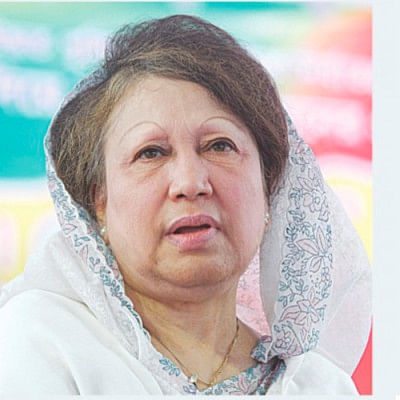Bail during the appeal process is the issue

There is no question that Prime Minister Sheikh Hasina has taught both the BNP chief Khaleda Zia and her party some big lessons – lessons of making political mistakes, of overestimating one's mass support, of depending too much on sycophants, of ignoring history and thinking that it can be custom made just by possessing political power, of never really trying to understand the underlying values of our Liberation War, of arrogance, of misuse of political power. The list is long. Not that they were the first political party in power to be guilty of such mistakes.
As is well known that the core lesson of history is that nobody learns from it. The world history is full of such instances. However, the lesson about those who try to teach others lessons is that they themselves become guilty of similar lapses for which the lessons are being taught in the first place. Are we running into a similar trap is the question we need to ask.
Coming to the specific case of Khaleda Zia's internment, has the government been fully able to convince the public that she is paying the price for the crimes she committed or is a victim- victim of being who she is and of making the mistakes we enumerated above? Here public perception is of seminal importance.
There is no question that BNP chief's internment is the result of a judicial process. However, that process has not ended. Appeal is pending in the case of both, one at the Appellate Division and the other in the High Court. The issue today is of bail pending the disposal of the appeals. Bail is a constitutional right and is available to every citizen regardless of his or her station in life and background.
Our view is that, given her age and health the government may wish to consider taking a more humanitarian view on the issue of bail. Obviously, it is for the courts to decide but the view of the government is also important. Of course, nothing should be done that law and precedence does not permit. But then everything we do sets a precedent and more humanitarian a precedent the better it is for creating essential political values that ultimately sustain democracy.

 For all latest news, follow The Daily Star's Google News channel.
For all latest news, follow The Daily Star's Google News channel. 




Comments